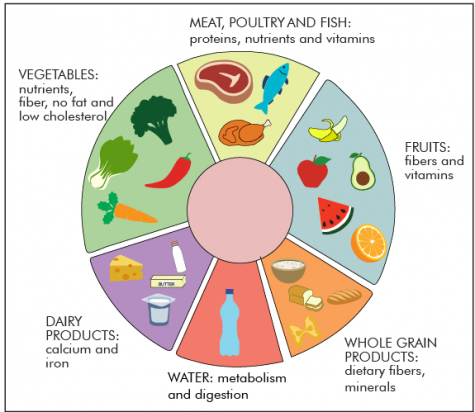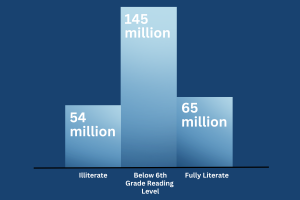Weighing the effects of diets on wrestlers
December 14, 2018

One glass of milk with a banana for breakfast. No lunch. A small salad with a side of chicken for dinner. This is what a typical day’s worth of meals is like for sophomore Pranav Chittharanjan during wrestling season. The total caloric intake of such a meal adds up to a mere 1000 calories.
Like Chittharanjan, several wrestlers follow strict diet plans during the wrestling season to be at the top of their group of athletes of roughly the same weight. Such grouping allows for more fair matching of opponents during tournaments. During a weigh-in on the day of each tournament, referees confirm that wrestlers are within their weight class. By going on diets, wrestlers can either gain or lose weight to be in their desired weight class, giving them a physical advantage over their competitors. Diets vary from wrestler to wrestler: while some raise their total caloric intake to move up a weight class or restrict carbohydrate intake, some stick to clean eating or skip meals altogether. Most wrestlers do not face extreme impacts from their diets, however, as strict rules regulate the minimum weight wrestlers can go down to, and coaches ensure that they are following guidelines to keep their athletes healthy.
“By law, wrestlers can only lose a certain percentage of their body weight each week,” said wrestling coach Alan Vinciguerra. “I’m not allowed to give them a diet plan, but the first thing we tell them is to change their eating habits. Stay away from soda, caffeine and unhealthy foods, and eat more vegetables and protein.”
While dieting can be advantageous for competitive reasons, it can also take a toll on a wrestlers’ physical health by causing them to sacrifice athletic performance in hopes that the pros of moving down a weight class will outweigh the cons. But when wrestlers are not able to receive sufficient nutrition, they become fatigued more easily and cannot perform as well as they would under regular conditions.
For example, unrefined carbohydrates, which wrestlers tend to be prefer over refined grains because of their higher nutritional value, can provide quick energy, but the limits certain diets place on carbohydrate intake often cause a drop in blood sugar, resulting in malnourishment and a lack of energy. Lowered carbohydrate intake can have a detrimental impact on athletic performance, especially when wrestling practices involve a large amount of strenuous strength training. In addition, because each ounce of weight is counted during the weigh-in, many wrestlers restrict water intake to limit their water weight which can cause dehydration.
“When you start losing water, especially if you’re already dehydrated, you become more tired and confused, and your body functions are off,” said athletic trainer Kathryn Thurman. “When you’re trying to juggle school, friends, family dynamics and sports, it can be really overwhelming.”
Dieting can also affect a wrestler’s mental health and cognitive performance. When the brain receives inadequate nutrition, the ability to focus and maintain consistent sleep patterns is directly affected.
According to a study done by Dr. Janet Tomiyama, a researcher and associate professor at the University of California, Los Angeles, low calorie dieting causes high cortisol levels, which leads to chronic stress. Due to the major brain development that occurs during adolescent years, it is crucial that teenagers get enough nutrition to sustain their growth and learning.
“I would say people are definitely grumpier when they’re hungry, and wrestlers are just hungry for months,” senior Bridget Naylor said. “I would notice the mental clarity and sharper focus, but I’d also be really hungry, which was distracting.”
Even with the harsh effects that they may face from dieting, many Lynbrook wrestlers agree that it is worth the fulfillment they feel from their sport when their hard work pays off in tournaments.
“You have to make some sacrifices for a goal,” said junior Abdullah Ashiq. “Even though there’s momentary discomfort, there’s also an overwhelming sense of pride that you feel when you’re improving and striving toward your goals.”
Many wrestlers recognize the importance of maintaining a healthy nutritional intake while on a diet, and accomplish this through planning out their meals ahead of time or seeking help from adults.
“I try to plan out my diet so that it doesn’t get too extreme and make sure I’m staying healthy,” Chittharanjan said. “Even though it’s important to stick to the diet, maintaining my health is also really important.”
Registered dietician and nutritionist Alene Baronian recommends that instead of skipping meals, athletes on a diet should maintain a well balanced diet year-round by eating breakfast and staying hydrated. By finding the perfect diet for their body, athletes are able to perform at their peak level.
“If you are challenged with weight, whether it’s more or less then what is ideal for your sport, look at tackling that on the off season,” Baronian said. “Work with a professional that can help figure out a way to eat to achieve the body composition you are striving for and be patient. Figuring out a way to eat for your body and sport takes some time.”
Although dieting has various advantages for wrestlers, a priority is placed on staying healthy when these athletes decide to diet. Diets can have dangerous side effects on wrestlers, but the harm is preventable when they understand how to keep themselves healthy. Wrestlers’ hardships are overpowered by the immense sense of achievement they experience when the diets help them reach new personal goals.




























































Caroline Steidley • Mar 15, 2022 at 8:20 pm
I’m a part of The Kirkwood Call, another school newspaper, and I’m doing a research paper on eating disorders within men, and this was a great source! Amazing writing and I loved your intro, really good piece:)